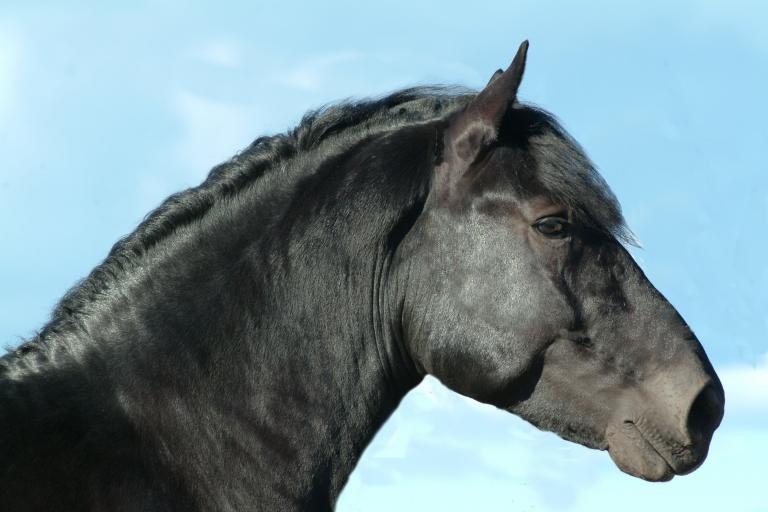Foal Immunodeficiency Syndrome (FIS Horse)
In Foal Immunodeficiency Syndrome (FIS), affected foals cannot produce antibodies. This nonfunctional immune system leads to anemia and early death.
The disease occurs in Fell and Dales ponies and is inherited autosomal recessively.
Genetic Test: available in Shop
Symptoms
- Recurrent infections
- Diarrhea
- Cough
- Problems suckling
- Anemia
General Information
- In Foal Immunodeficiency Syndrome (FIS), antibodies that are usually produced after birth cannot be build by the impaired immune system.
- At the age of 3 – 6 weeks, when the foal stopps suckling, maternal antibodies decrease in foals body and infections occur.
- Anemia usually causes early death or euthanasia of the affected foal.
- Estimated 10% of Fell ponies and 1% of Dales ponies are affected by FIS (data from UK breed societies).
Test Information
Genotype and Lab Report
Inheritance: autosomal recessive
→ Only horses with two copies of the variant (fis/fis) are affected. Horses with only one copy (N/fis) are clinically healthy carriers.
Genotypes:
N/N = normal
The horse has no copies of the genetic variant causitive for FIS and therefore cannot pass it on to its offspring.
N/fis = a carrier
The horse is clinically healthy. It has one copy of the genetic variant causitive for FIS, which will be passed on to its offspring with a probability of 50%.
fis/fis = affected
The horse is affected and will not live long enough to reproduce.
Recommendations
- Carriers may be bred to normal animals (N/fis x N/N) without any risk of producing affected offspring. The offspring should also be tested before breeding to determine if they are carriers or normal.
- Breeding two carriers (N/fis x N/fis) is not recommended due to the possibility of 25% of the offspring being affected.
Literature
Fox-Clipsham, LY., Carter, SD., Goodhead, I., Hall, N., Knottenbelt, DC., May, PD., Ollier, WE., Swinburne, JE.: Identification of a mutation associated with fatal foal immunodeficiency syndrome in the fell and dales pony. PLoS Genet 7:e1002133, 2011. Pubmed reference: 21750681. Doi: 10.1371/journal.pgen.1002133.
Further information is available at Online Mendelian Inheritance in Animals.

